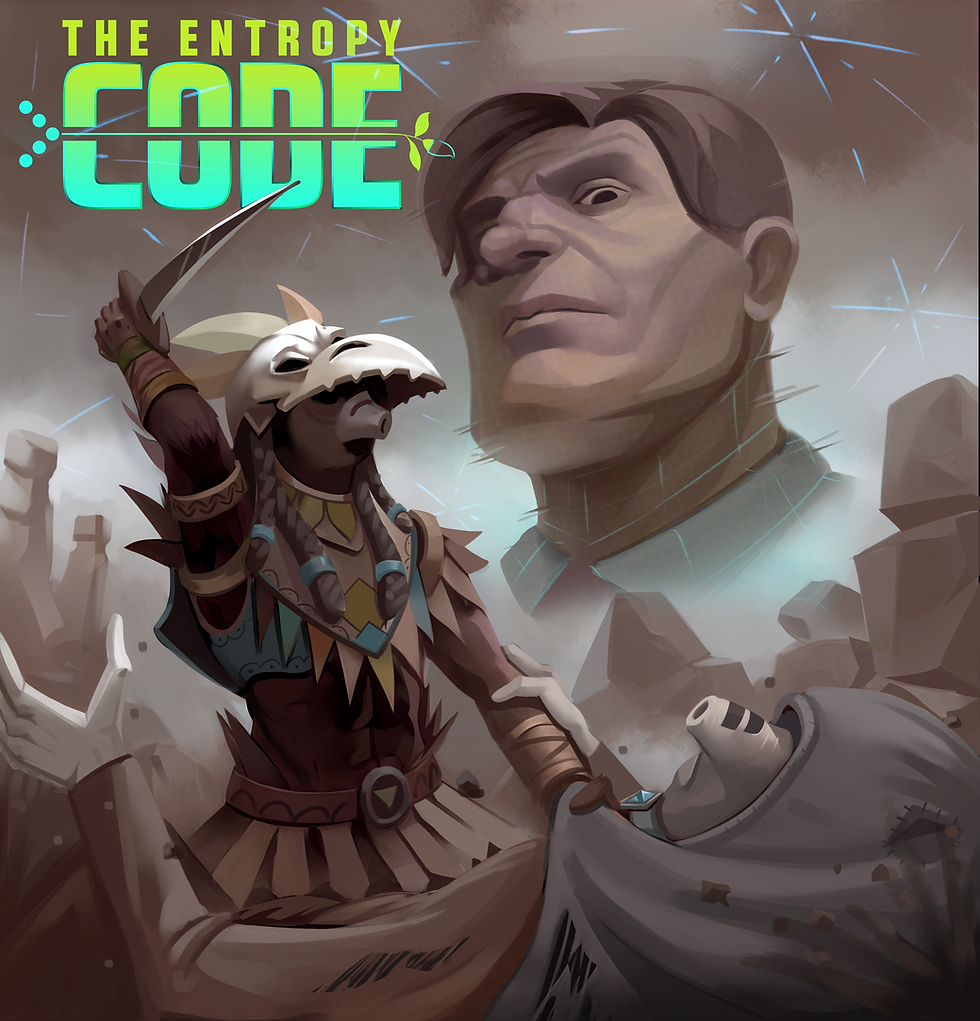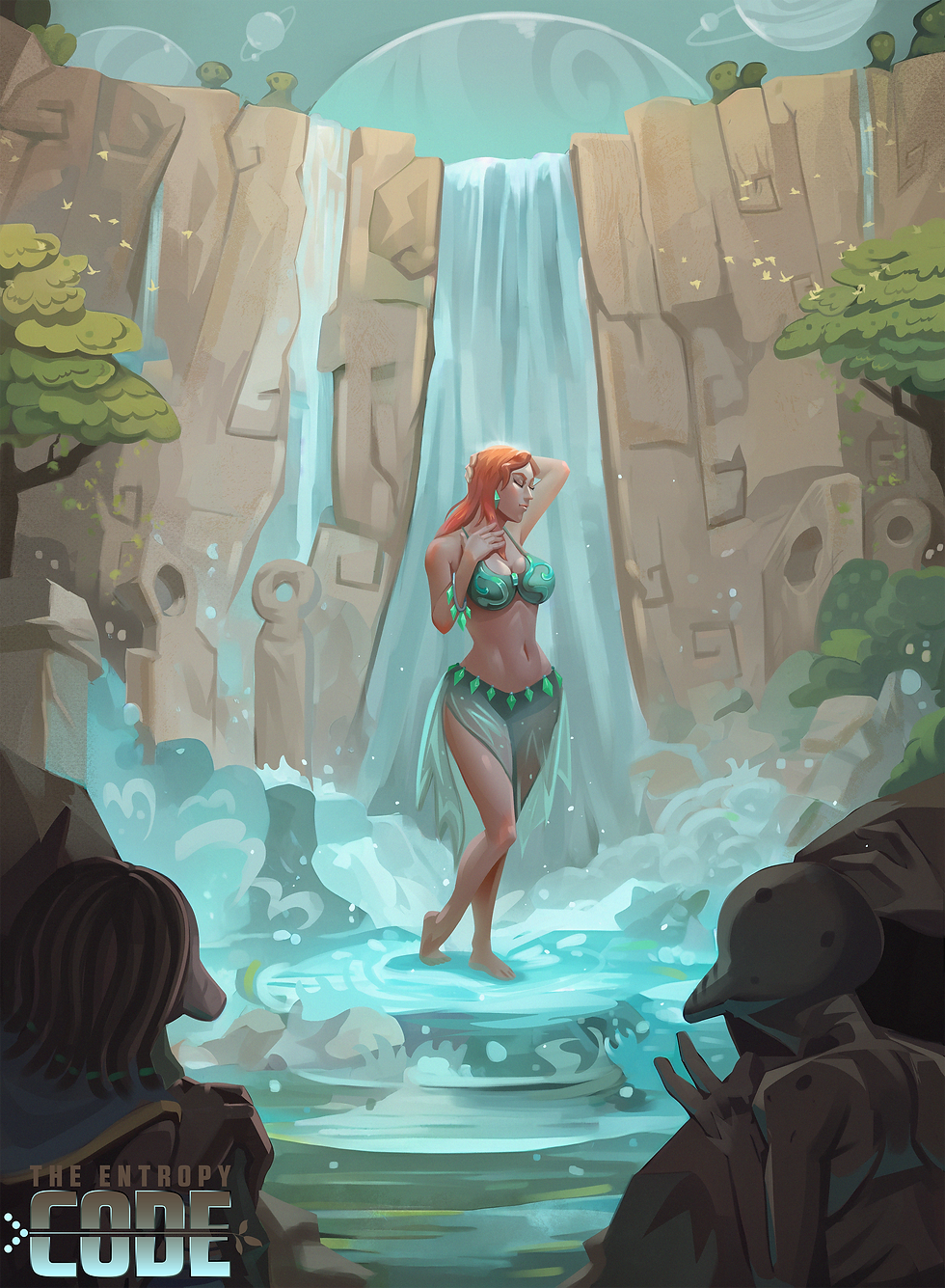Getting Heavy with Writer-Director Narottama Panitz
- theentropycode
- Mar 5, 2025
- 4 min read
Updated: May 29, 2025
The Emotional Core – Why The Entropy Code Matters

Hi, I'm Narottama, the creator of 'THE ENTROPY CODE', and I wanted to share a little about what's been driving me to see this passion project through. I've always been fixated on life's biggest questions. As a kid, I couldn’t get past the idea that we’re on a spinning blue ball in an infinite void, destined to die. My journey has taken me through Hinduism, atheism, Christianity, and back to a Jordan Peterson-style "cultural Christianity"—but the questions never disappeared.
One day, in a philosophical debate group, I had a realization: Every question we might ask God, we could also ask engineers simulating self-organizing worlds on quantum computers. Would their reasoning be any different? What if they built these worlds out of boredom? What if they had no grand purpose, just curiosity? Suddenly, polytheistic engineer-gods arguing over civilizations made more sense to me than an omnipotent deity choosing not to intervene in a tsunami.
I’ve run with this idea, not just because it’s fascinating, but because it flips our understanding of existence. In The Entropy Code, the gods aren’t divine—they’re overworked interns trying to produce the next big hit song by manipulating simulated beings. And in a world where secularism often leads to nihilism, maybe some petty, flawed, bickering gods could restore a little balance.


Idealism vs. Reality – Kaila’s Empathy vs. Vince’s Pragmatism
Kaila, our protagonist, has what I call suicidal empathy. The kind of person who dives in to save the gasping shark, only to get bitten for their trouble. She believes she can help the captives if she just cares enough. In contrast, Vince, our antagonist, has tried and failed.

"I gave them everything they could ever want! And what happened? Nothing. No development. Just mindless organisms. How many times do you think I’ve had to start over? How many universes I’ve deleted?"
Vince is cold, pragmatic, and exhausted. He represents the hard reality that sometimes, suffering doesn’t lead to growth. And yet, Kaila’s empathy is what makes her powerful. She’s not an action hero beating up men twice her size—she’s something more radical: an authentically female hero. She doesn’t win by overpowering, but by understanding.
On a deeper level, Enter-Tek’s goal isn’t just about controlling music—it’s about controlling feeling itself. In this world, people have grown too soft to create anything truly moving. Enter-Tek doesn’t just want another hit; they need authentic suffering to extract raw emotion. And the terrifying part? It took me two years to create an AI-generated sound that was more beautiful than anything a human could sing. If you suspend disbelief for a moment, is it so hard to imagine a world where simulated pain produces the most powerful art?

The Alien Perspective – The Ones Who Suffer
To the captives, life is just... life. They don’t know they’re in a simulation. Like us, they have myths, superstitions, and half-baked explanations for suffering. In The Gods Must Be Crazy, a coke bottle falls from the sky and disrupts a tribe’s reality. The Entropy Code plays on the same idea: What happens when advanced beings manipulate a primitive world for their own entertainment?
The captives see their captors as distant cousins. Biologically related, but divided by circumstances beyond their control. The captors, fed and thriving, have grown into vibrant, beautiful creatures, while the malnourished captives have shriveled into gray, moth-like beings. The audience might catch themselves judging the captives—because we humans always use our eyes to decide what’s beautiful and worth cherishing versus what’s ugly and expendable.
And the scariest realization for them? That their gods don’t care. Or worse—that their gods do care, but only enough to extract a song from their grief.

What The Entropy Code is Really About?
At its core, The Entropy Code isn’t just about simulation theory—it’s about power, exploitation, and the cost of creation. It’s about the illusion of choice in a system designed to extract, manipulate, and profit from suffering.
In a world where simulated civilizations rise and fall under the watchful eye of corporate engineers, every emotion, every moment of struggle, is fuel for the machine. Art isn’t created—it’s harvested.
Kaila, an overworked intern at Enter-Tek, sees a system designed to manufacture scarcity and curate suffering for profit. When she tries to save a captive mother and child from becoming another asset in the company’s portfolio, her rebellion throws the entire simulation into chaos.
But what happens when the people inside the simulation aren’t the only ones trapped?
The Entropy Code asks the unsettling question:
👉 If we were in a simulation, would it even change anything?
👉 Is struggle necessary for meaning, or is it just another product to be sold?
👉 And if we found out our gods were just underpaid employees, would we even care?
Because in the end, whether we’re real or not… our bills are still due.
🚀 Discover God. Inside a Simulation.





Comments